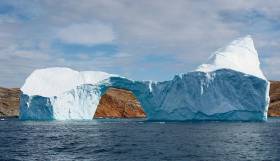Displaying items by tag: Heavy Fuel Oil
Ireland Supports Heavy Fuel Oil Ban From Arctic Shipping
#Shipping - Ireland supports a move toward banning the use of heavy fuel oil from Arctic shipping, following a meeting of the International Maritime Organization (IMO) in London earlier this month.
Plans to develop a ban on heavy fuel oil (HFO) from Arctic shipping, along with an assessment of the impact of such a ban, were agreed upon during the IMO’s Marine Environment Protection Committee, which closed on Friday 13 April.
The move was welcomed by the Clean Arctic Alliance campaign, which called on IMO member states to “make every effort” to adopt and implement a ban on “the world’s dirtiest fuel” by 2021.
“Thanks to inspired and motivated action taken by a number of IMO member states to move towards a ban on heavy fuel oil, Arctic communities and ecosystems will be protected from the threat of oil spills, and the impact of black carbon emissions”, said Dr Sian Prior, lead advisor to the coalition of 18 NGOs working to end HFO use as marine fuel in Arctic waters.
“A ban is the simplest and most effective way to mitigate the risks of HFO – and now we’re calling on the IMO to ensure that this ban will be in place by 2021. Any impact assessment must inform, but not delay progression towards an Arctic HFO ban, and member states must ensure that Arctic communities are not burdened with any costs associated with such a ban.”
The proposal to ban HFO as shipping fuel from Arctic waters was co-sponsored by Finland, Germany, Iceland, Netherlands, New Zealand, Norway, Sweden and the United States.
The proposal for a ban, along with a proposal to assess the impact of such a ban on Arctic communities from Canada, was supported by Australia, Belgium, Czech Republic, Denmark, Estonia, France, Ireland, Japan, the League of Arab States, Poland, Portugal, Spain, Switzerland, and the UK.
Support from Denmark is particularly notable as it is the sixth Arctic nation to support the ban, according to the Clean Arctic Alliance.
“With Denmark the sixth Arctic nation to back a ban on HFO from Arctic shipping, the green alliance of Arctic nations have sent a clear message to the IMO,” said Kåre Press-Kristensen, senior advisor in the Danish Ecological Council.
“With both the Danish government and the Danish shipping industry united to ban HFO, we hope to gain further international support for the ban from more nations and progressive parts of the shipping industry. Next step will be to engage Greenland further in planning and preparing for the ban.”
Alaskan native Verner Wilson, senior oceans campaigner for Friends of the Earth US and a member of Curyung Tribal Council, with Yupik family roots in the Bering Strait region between Russia and the US, said: “I am grateful that IMO has advanced a ban on HFO to help protect Arctic communities and our traditional way of life.
“For thousands of years we have relied on our pristine waters and wildlife – and now the IMO has taken this important step to help protect our people and environment.”
The Clean Arctic Alliance says there “widespread support from within the industry” for a HFO ban, citing the Association of Arctic Expedition Cruise Operators, the Norwegian Shipowners Association and icebreaker company Arctia as among those who have expressed support.
























































